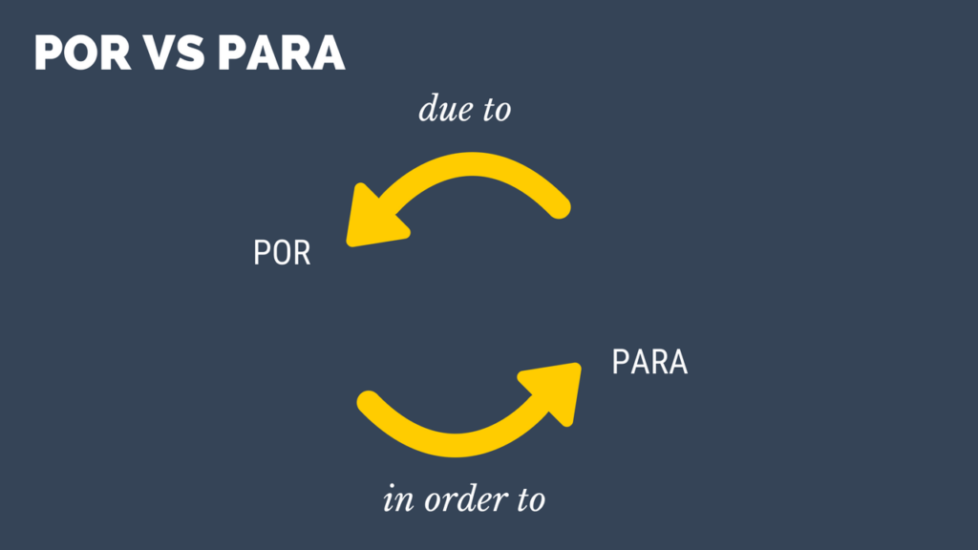Por vs. Para

In Spanish there are two prepositions that can be translated to “for”. They are “por” and “para”. These words can have other meanings too. This can cause confusion so here is a list of when to use each one:
Por
This preposition is used in the following ways:
1. because of or due to:
Ella no va a asistir a la clase por la lluvia.
She is not going to attend the class because of the rain.
2. through or along:
Nosotros caminamos por la playa cuando hace sol.
We walk along the beach when it is sunny.
3. by means of:
Mis padres prefieren viajar por tren.
My parents prefer to travel by train.
4. for the sake of:
Ella lo hace por ellos.
She does it for them.
5. in exchange for:
Ella pide $200,000 por la casa.
She’s asking $200,000 for the house.
6. duration:
Caminé por mucho tiempo.
I walked for a long time.
7. Used in various fixed expressions:
por favor = please
por lo menos = at least
por supuesto = of course
por todas partes = everywhere
por Dios = for heaven’s sake
por ejemplo = for example
por eso = that’s why
por fin = finally
Para
Used as the English word for stating the goal, the destination or the purpose
1. toward or in the direction of:
Voy a salir para México mañana.
I am leaving for Mexico tomorrow.
2. to be given to:
Todo el dinero es para mi esposa.
All of the money is for my wife.
3. as compared to others:
Para ser de otro país, él sabe mucho sobre nuestra nación.
For being from another country, he knows a lot about our nation.
4. in order to:
Yo asisto a mis clases para aprender.
I attend my classes to learn.
5. a deadline:
La tarea es para el jueves que viene.
The homeowrk is for next Thursday.
6. to be used for:
La mochila es para los libros de mi hijo.
The backpack is for my son’s books.
7. to work for:
Yo trabajo para mi suegro.
I work for my father in law.
